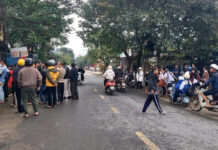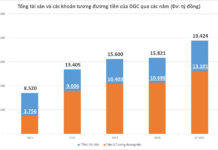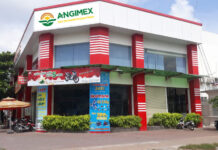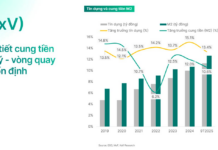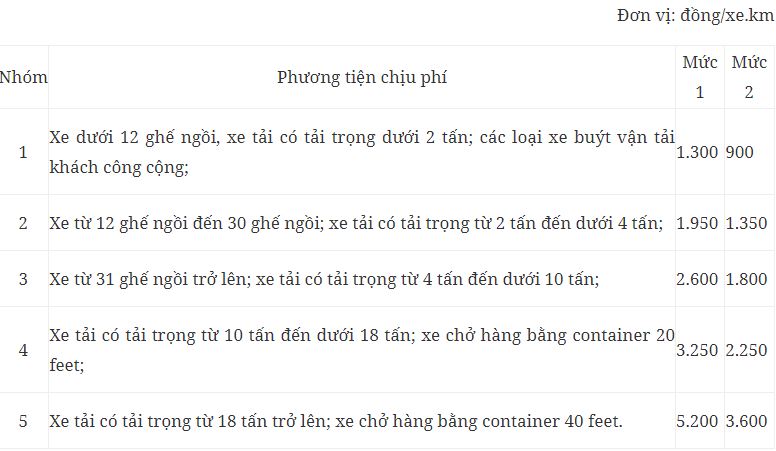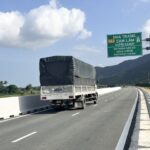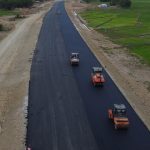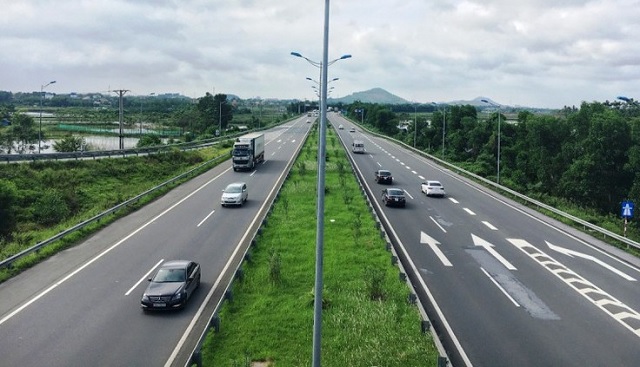
Conditions for Implementing Toll Road Fees for Expressways
The draft clearly states that the toll roads are owned by the people and directly managed and operated by the State. The expressways that will be subject to toll fees include those that meet the following conditions:
1. Designed and constructed according to technical regulations and standards for expressways and other relevant technical standards and regulations.
2. Completed, handed over, and operational in accordance with the Law on Roads, construction laws, and other relevant legal provisions.
For expressways that were approved for investment before the Law on Roads took effect, if they do not fully meet the requirements specified in Clause 1, Article 45, and Clause 2, Article 47 of the Law on Roads, toll fees will be implemented once the infrastructure for toll booths, software systems, and equipment are in place, along with public service facilities at rest stops as approved by competent state agencies, as well as technical infrastructure and management technology for traffic control.
Timing for Implementing Toll Road Fees for Expressways
According to the draft, based on socio-economic conditions and the need to manage expressways that meet the specified requirements, the asset management agency will formulate an asset exploitation plan for toll roads and submit it to the competent authority for approval in accordance with laws on state assets and specialized laws.
The timing of toll collection, the roads subject to tolls, and the toll rates will be specified in the asset exploitation plan approved by the competent authority.
5 Groups of Subjects Charged with the Fee
Subjects of the toll road fees are vehicles traveling on expressways owned by the people and directly managed and operated by the State. These subjects are divided into 5 groups as follows:
– Group 1: Vehicles with less than 12 seats, trucks with a load capacity of less than 2 tons, and public transport buses.
– Group 2: Vehicles with 12 to 30 seats, trucks with a load capacity of 2 to 4 tons.
– Group 3: Vehicles with 31 seats or more, trucks with a load capacity of 4 to 10 tons.
– Group 4: Trucks with a load capacity of 10 to 18 tons, and 20-foot container carriers.
– Group 5: Trucks with a load capacity of 18 tons or more, and 40-foot container carriers.
The draft clearly states that organizations and individuals owning, using, or managing vehicles that fall under the subjects of the toll road fees are required to pay the charges, except for those that are exempt.
Subjects Exempt from the Toll Road Fees
The following subjects are exempt from paying toll road fees when traveling on expressways owned and directly managed and operated by the State:
1. Ambulance.
2. Fire truck.
3. Military-specialized vehicles, including those with a red background and white letters and numbers, equipped with specialized defense equipment (including tankers, cranes, troop carriers with 12 or more seats, covered freighters with installed seats, inspection vehicles, military control vehicles, prisoner transporters, rescue vehicles, satellite communication vehicles, and other special vehicles for national defense purposes).
4. Security-specialized vehicles of the Ministry of Public Security, Provincial/City Public Security, and District/County Public Security, including:
– Traffic police patrol vehicles with flashing lights on the roof and “CẢNH SÁT GIAO THÔNG” (Traffic Police) printed on both sides.
– Police rapid response vehicles with “CẢNH SÁT 113” printed on both sides.
– Mobile police vehicles with “CẢNH SÁT CƠ ĐỘNG” printed on both sides.
– Military and police vehicles on urgent missions using priority signals as stipulated by law.
– Covered freighters with installed seats for transporting police forces.
– Prisoner transporters, rescue vehicles, and other special vehicles with designated license plates as stipulated by law.
5. Funeral-specialized vehicles, including:
– Vehicles with a specialized structure for funeral services (including hearses and refrigerated trucks for body storage and transportation)
– Supporting vehicles for funeral services (including passenger vehicles accompanying the hearse, flower transporters, and photo carriers) that are solely used for funeral activities and registered under the name of the funeral service provider. The funeral service provider must submit a written commitment stating that these vehicles are exclusively used for funeral activities, along with details of vehicle quantity and license plate numbers for each type.
6. Vehicle convoys escorted by traffic police.
7. Military and police vehicles using national road tickets.
Toll Amount and Rate for Expressways
The toll amount to be paid is determined based on the type of vehicle, the actual distance traveled (km), and the corresponding rate for each type of vehicle (VND/km).
The proposed toll rates for vehicles traveling on expressways owned by the people and directly managed and operated by the State, under the management of the Ministry of Transport, are as follows:
Toll rates for vehicles traveling on expressways owned by the people and directly managed and operated by local authorities (under the management of the Provincial People’s Committee) shall be determined by the Provincial People’s Council.
Based on the above-mentioned rates, the applicable rates for each expressway or section will be specified in the asset exploitation plan approved by the competent authority.
10-Year Warranty Paths and ‘Invite Residents to Verify’ Commitment
It’s easy to spot the blue signs that say “10-year warranty” when driving on the Mai Son-QL45 or Nghi Son-Dien Chau highways, or most recently the Nha Trang-Cam Lam highway. To turn this promise into reality, businesses have shown it through the entire construction process, hard work, innovative approaches, modern technology, increased productivity, and reduced implementation time…
Vân Phong – Nha Trang Highway Accelerates Progress, Speeding Towards Completion
The progress of the Vân Phong – Nha Trang expressway project is 2% ahead of schedule, with an expected completion in 2025 and operation starting in 2026.
Expediting the disbursement of public investment funds for the Tuyen Quang – Ha Giang expressway project
On the afternoon of February 16, Minister Nguyen Chi Dung and the delegation from the Ministry of Planning and Investment visited and inspected the progress and urged the disbursement of public investment capital for the Tuyen Quang – Ha Giang expressway project (phase 1) passing through Bac Quang district, Ha Giang.
Minister Nguyen Chi Dung: ‘Identify public investment as top priority for consistency in management’
To successfully implement the public investment plan for 2024, according to the Minister of Planning and Investment Nguyen Chi Dung, it requires a spirit of innovation and high political determination, as well as increased responsibility from all levels and sectors from central to local. In this regard, the prerequisite is to prioritize public investment as the top priority for consistency in management.






